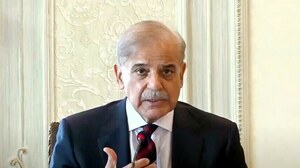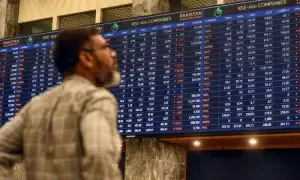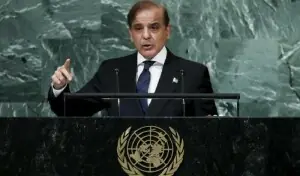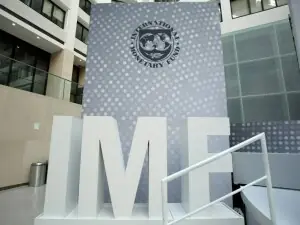The dollar inched towards last week's record low against the euro on Tuesday as investors awaited data to indicate how easily the United States is funding its current account deficit. Euro zone finance ministers called on the United States to live up to its strong dollar policy, stepping up the rhetoric against the euro's rise but stopping short of talking about outright currency market intervention.
The market is now looking to US asset flow data at 1400 GMT to see whether the world's largest economy is attracting enough capital flows to offset downward pressure on its currency from its current account deficit.
"It's not going to be a strong enough number to give the dollar any real support today," Mitul Kotecha, head of global foreign exchange research at Calyon. "The market appetite is to sell dollars on any excuse and today's numbers could be a risk."
At 1236 GMT, the dollar was 0.22 percent weaker against the euro at $1.2973, within sight of last week's record low at $1.3005. The greenback was steady against the yen at 105.29, holding just above seven-month lows hit on Monday.
Many traders said underlying weakness in the dollar would remain as long as the market focused on the size of the US current account deficit and remained of the view that Washington wants a weaker dollar to curb it.
US Treasury Secretary John Snow, visiting London, said on Tuesday the US budget deficit was too big but insisted there was no need to cut spending on the "war on terror".
Forecasts for the size of September flows into US assets vary with some analysts expecting a figure as high as $60 billion and others seeing $50 billion or less - not enough to offset the September trade deficit of $51.6 billion.
The August inflow totalled $59 billion. Analysts say the composition of buyers and assets will also be key for the dollar's fortunes, with bond investors more likely to have hedged their US assets, lessening the positive effect on the dollar.
The euro showed little reaction to comments from eurozone policy makers on Tuesday.
German Chancellor Gerhard Schroeder spoke of widespread concern about the effect of the strong euro on Germany's export sector, while Luxembourg Prime Minister Jean-Claude Juncker said Washington should apply a strong dollar policy.
Belgium Finance Minister Didier Reynders said he viewed the euro above $1.30 as worrying.
The comments follow others from euro zone finance ministers meeting in Brussels on Monday and a warning last week from European Central Bank president Jean-Claude Trichet that recent euro/dollar moves were brutal and unwelcome.
"It's the same story but a slight rewording. People are really looking for Trichet to give guidance," said Mark Henry, currency strategist at GNI.
With the current account shortfall the dominant theme in the market, dealers were waiting to see if US and global policy makers would come up with policy to tackle the deficit problem at a meeting of Group of 20 finance ministers this weekend.
The group, encompassing the Group of Seven developed countries as well as major developing nations including China, is set to discuss foreign exchange issues at the meeting.
Speculation is rife that China, which pegs its currency to the dollar, will come under renewed pressure to revalue the yuan.
China however kept to its gradual approach, with the central bank saying on Tuesday it would maintain stable monetary policy and keep the yuan basically stable.
BR100
16,405
Increased By
92.5 (0.57%)
BR30
52,938
Increased By
579.1 (1.11%)
KSE100
158,781
Increased By
743.5 (0.47%)
KSE30
48,500
Increased By
249 (0.52%)





















Comments
Comments are closed.